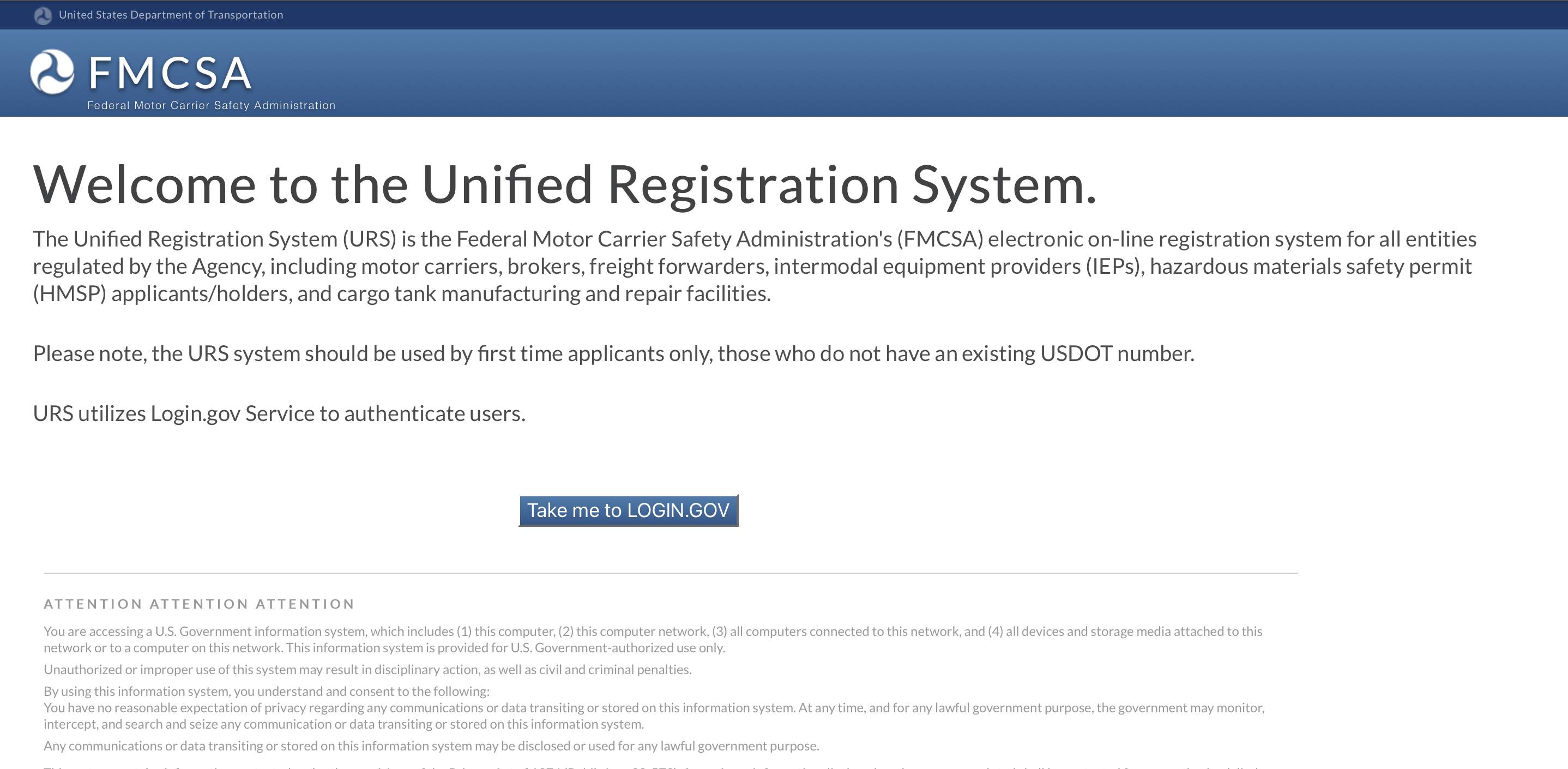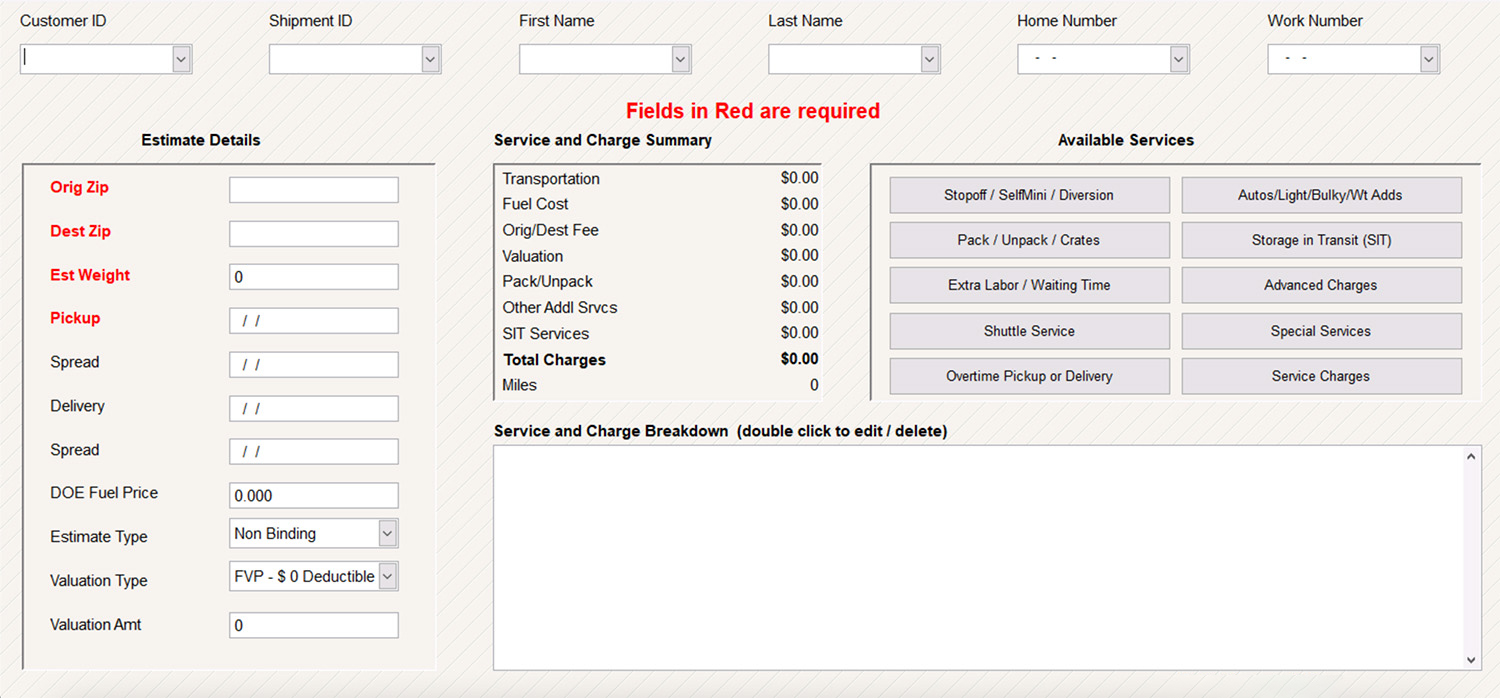INTERSTATE MOVING COMPANY
The moving industry is full of red tape. Interstate moving, especially, can be confusing. Even experienced local movers usually have a difficult time pinning down what the FMCSA requires before they get started. Whether you’re new to interstate, or new to moving in general, this 8 step guide will help you cover your bases for this (in my opinion) needlessly complex process.
Get Started with Interstate Moving in 7 Easy Steps
By law, there are a few things you need to have in place before you start running interstate moves. Safety auditors will probably ask for proof of a few of these things. Bear in mind that ALL of the following steps are legal requirements. It’s best if you do them in order.
The FMCSA requires that you obtain a DOT# (a unique identifier for audits and inspections). You must register for this within the FMCSA's Unified Registration System. After you’ve created an account, follow the steps in the portal to finish applying for your interstate authority.
Note: The FMCSA will ask for Proof of Arbitration within the application form. For that, continue to step 2.

Arbitration is a third party moderated claims resolution program. If your customer is not satisfied with your compensation for damages, the FMCSA dictates that they have the right to move to arbitration. In other words, it’s a requirement that you’re actively enrolled in an arbitration program (movers have lost major lawsuits for not doing this).
Moving Pros Network offers a standalone arbitration program, but you’ll be better off bundling arbitration with your INTERSTATE TARIFF (more about that at number four). You can enroll in arbitration and also receive a tariff here.
This is a big one. The FMCSA requires that all interstate movers use a tariff to calculate pricing. Interstate tariffs must abide by several DOT guidelines, meaning that it should be written by a lawyer specializing in moving regulations. Also, every interstate move you do must be priced with strict adherence of the ruleset of your tariff.

The MPN tariff is used by over 300 movers across the U.S. for it’s affordability and ease of use. One of the big selling points is that it comes with an online pricing software that automatically calculates estimates based off the tariff and ensures that you stay within the tariff ruleset. If you haven’t already purchased the tariff bundled with the aforementioned tariff, you can do so here.
The bill of lading is the official contract your customers will sign off on for the job. If you have the MPN tariff, your bill of lading will automatically print out prefilled from the software. Otherwise, you’ll need to get a blank bill of lading form to fill out for each job. A quick Google Images search will give you several generic bill of lading forms that will work fine. Just keep in mind that the final charges presented on the bill of lading must be calculated through your tariff.
For interstate moves, you’re required to have $750,000 in BIPD (Bodily Injury and Property Damage) insurance and $5,000 (per vehicle) in cargo insurance. All you need to do is purchase the coverage, since it is your insurance company’s responsibility to file your proof of insurance with the FMCSA.
The BOC-3 form designates a processing agent who can file legal documents on your behalf and is required for all interstate movers. It must be filed by a processing agent; you cannot file the BOC-3 on your own. The good news is that this takes about a minute and isn’t expensive. We file BOC-3’s for virtually an at-cost rate, which you can order here.

The UCR (United Carrier Registration) collects fees associates with your trucks. They require that you register once per year and pay a fee for each truck you cross state lines with (vehicles you’re not using for interstate moves are exempt). You can register yourself at www.ucr.gov.
If you’d prefer that we register on your behalf, go here. Select the year you’re registering for and the number of trucks you’re using.
That’s it! You're ready to start moving.
Let's make things as simple as possible. If you followed the guide above, you should be able to check off all of the following:
✅ Get Your DOT Number
✅ Tariff & Arbitration
✅ File Your BOC-3
✅ UCR (Unified Carrier Registration)
✅ Insurance
Moving Pros Network
Moving Pros Network helps established and new movers stay FMCSA compliant in all their interstate movers. Our tariff and accompanying software has been used for decades by carriers all across the U.S. Reach out today to learn how we can help you succeed.
